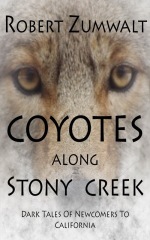Early in the 19th century, Washington Irving created a hoax around a fictional old Dutchman named Diedrich Knickerbocker. Irving went so far as to advertise for information on Mr. Knickerbocker’s whereabouts, teasing the public with the prospect of publishing the Dutchman’s abandoned manuscript: A History of New-York from the Beginning of the World to the End of the Dutch Dynasty. New Yorkers seemed to accept the joke with good humor and Washington Irving became famous. A fictional history, properly played, was as good as the real thing. After all, the need for provenance, a history to call one’s own, runs deep.
By the end of the century, this preoccupation with finding one’s roots had become an obsession. My earlier post on H. H. Bancroft touched on one entrepreneur who rode this crest (alas, with less humor than Washington Irving.) In California, almost every county had its own local history, usually written by local notables, giving their friends and themselves voluminous homage for their civilizing influence during the period following statehood in 1846. These county histories stood side by side more focused autobiographies by early pioneers: usually white immigrants from the East, but also a few from the Mexican families that met them.
In fifty years, the state had gone from the fledgling western anchor of Manifest Destiny to a world-class economic center. This evolution was based first on the precious metals of the Gold Rush and Nevada silver mines, then on the agriculture of its Central Valley. The magnitude of these events swept along the egos of those who witnessed them first hand and left a hole to be filled.
More often than not, these histories and biographies portray a quest that characterizes the heroic nature of the state where men (most visibly, but women, as well) looked back at what they’d done and tried to fashion it into a proper monument to their fame–in the classical sense of carving out a niche in the pantheon of future memories. And if the truth must be massaged a little to insure its presentability on this altar to the ego, such is truth’s nature. Washington Irving understood this better than most.
Now, the media has changed. Books have been supplanted (in popular consciousness, at least) by the digital editions of fame, often nearly as fleeting as the electrical energy that heralds them. But that merely changes the venue, not the game. In a contemporary quest to enter the pantheon, enter the late, great CEO of Ebay and her brain sibling who parachuted nicely from Hewlett-Packard. These ladies are determined to buy their way into household word-dom much as their forbearers in California’s last Gilded Age. I suppose if Leland Standford, former governor and founder of the Farm, could do it, it must be OK for Meg and Carly. So far, the tales they’re spinning about their own accomplishments are reviving memories of Washington Irving.
More later . . . ever hear of the Gold Bugs?
